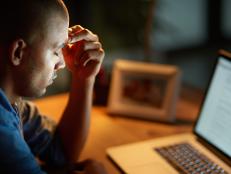Work Burnout is Now Officially Recognized as a Health Condition
How meaningful self-care can help defeat work burnout.


Jamie Grill
We all want to do well at our jobs. Many of us want to climb the corporate ladder and reach our career goals. But we also want time to relax, take part in hobbies and spend quality time with our friends and family—if we can get away from work long enough to do those things. Sounds stressful just thinking about it, right?
If your work/life balance seems to be tipping the scales toward work, you may be feeling work burnout, and now the World Health Organization (WHO) considers this a concerning health condition.
According to the WHO, burnout is an “occupational phenomenon” tied to "chronic workplace stress that has not been successfully managed." To better diagnose burnout, the WHO said this syndrome includes the following indicators:
- Feelings of energy depletion or exhaustion
- Increased mental distance from one's job, or feelings of negativism or cynicism related to one's job
- Reduced professional efficacy
What’s leading so many of us to feel the burn? One major factor is technology. We are often connected to our work by email and our phones—even after hours and on weekends. We never truly get a break.
If you felt depleted and exhausted when you left work yesterday, or you spend Sunday night with the blues because you have to return to work on Monday mornings, here’s how you can combat the effects of burn out.
Experts say managing your time better during the day can help.
- Be sure to take your breaks and lunch hours to decompress and relax. Rather than skipping these times away from work, force yourself to walk away from your desk and take time for yourself.
- Use your vacation days. Rather than stockpiling time, plan those vacations! Even if you take just one long weekend away, it will help you mentally and physically recuperate.
- Disconnect after hours and on the weekends. If you can’t turn off your technology, you can’t be truly present while doing the things you want to do outside of work. So, no checking emails on your days off!
Your self-care is important and it’s the only way you can make sure you are the best employee and, much more importantly, the best you.















